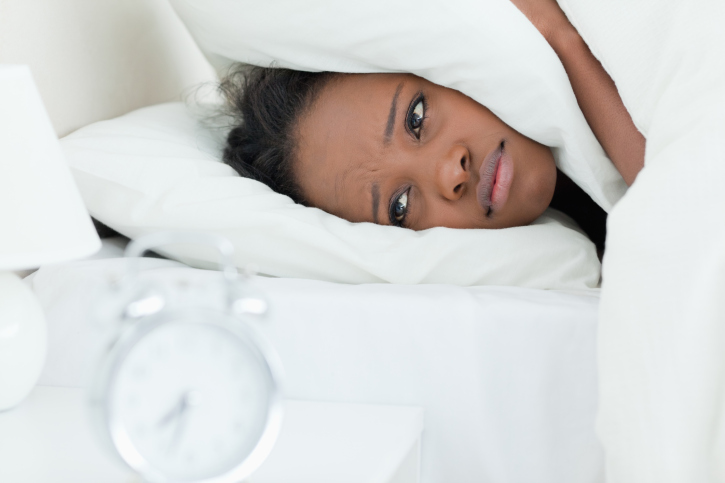 Unable to get your beauty sleep? Do you find yourself constantly roused during the wee hours of the night? Being unable to sleep through the night could be a sign of a deeper health issue.
Unable to get your beauty sleep? Do you find yourself constantly roused during the wee hours of the night? Being unable to sleep through the night could be a sign of a deeper health issue.
Here are a few of the most common causes of nighttime waking and what you can do about it.
Anxiety or Depression
It’s no secret that mental health issues such as anxiety or depression can cause restlessness and the inability to fall or stay asleep at night. In some cases, symptoms can worsen and become so severe, that one may wake up due to panic attacks, nightmares or feelings of uneasiness.
According to the Anxiety and Depression Association of America (ADAA), anxiety disorders are the most common mental disorder, affecting about 40 million adults in the U.S.
Symptoms: While occasional anxiety is normal, those with anxiety disorder are, “three to five times more likely to go to the doctor and six times more likely to be hospitalized for psychiatric disorders” than those who don’t suffer from the disorder, the ADAA says. Sufferers may feel constant irrational worry and fear that can interfere with day-to-day life.
How to fix the problem: If one of the two is preventing you from counting sheep, you may need to seek professional help. There are several forms of treatment that may benefit you, including cognitive-behavior therapy, medication, relaxation techniques or exercise.
Nocturia
Also called nocturnal polyuria, notcturia is defined as frequent urination at night. For most people, urine production slows down as you slumber. But, with the medical condition, that urge to go never ends, prohibiting you from getting that much needed 6 to 8 hours of uninterrupted sleep.
Symptoms: An immediate urge to pee whenever you wake up at night on a regular basis could mean nocturia.
How to fix the problem: Say no to fluids before you call it a night -- especially tea or coffee, which act as diuretics. Other underlying health problems that can mimic nocturia include: urinary tract infection, pregnancy, kidney woes, an enlarged prostate gland, or even diabetes. Naturally, treatment will vary based on what’s causing your symptoms.
READ: Sleep Apnea 101: Everything You Need To Know For A Better Sleep
Sleep Apnea
Sleep apnea is a common disorder in which you have one or more pauses in breathing or shallow breaths while you sleep, according to the National Heart, Lung and Blood Institute. Every time this happens, you may be awakened from your sleep.
Symptoms: Sufferers may experience migraines, sore throat, dry mouth, and chest pain. Some may even have nightmares, after the fact.
How to fix the problem: Once diagnosed, doctors may treat the condition by suggesting certain lifestyle changes, such as weight loss, or quitting smoking as well as the use of a breathing assistance device at night, called a continuous positive airway pressure (CPAP) machine.









